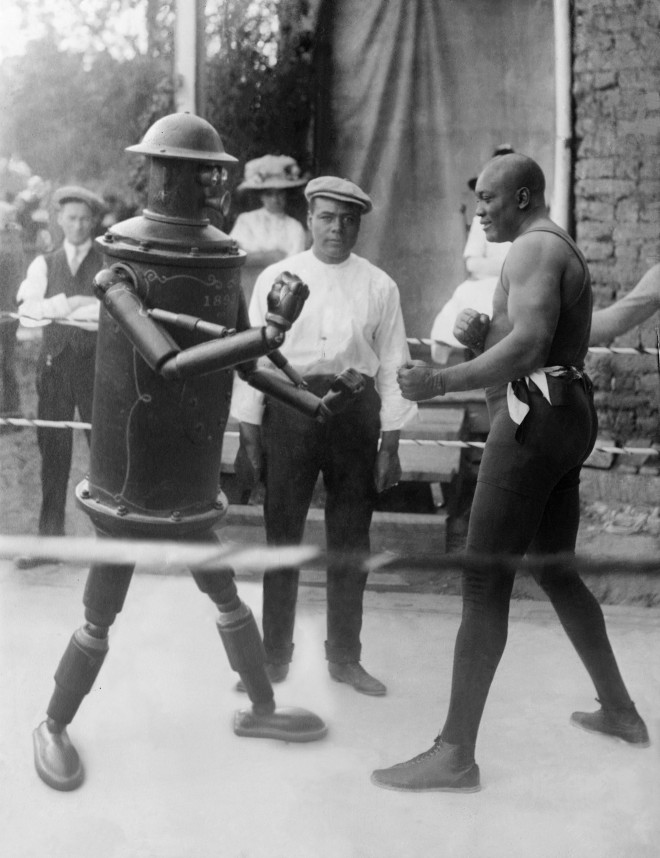The main question I’ve asked since beginning this blog–and one you may be weary of by now–is this: How do we reconcile what’s largely a free-market economy with one that’s highly automated? All work that humans currently do that can be replicated by Weak AI will be ceded to the machines. Will the lack of McJobs (fast-food workers, hotel clerks, customer service, etc.) and many knowledge-based ones (here and here) be replaced by work in other yet-to-be hatched industries? If not, how do the majority of people share in the great bounty that automation will yield? I don’t think getting to own really cheap smartphones will be enough. At some point, the people grow tired of bread and Kardashians. The opening of a Salon article about the destabilizing effects of the Peer Economy by that mensch Robert Reich:
How would you like to live in an economy where robots do everything that can be predictably programmed in advance, and almost all profits go to the robots’ owners?
Meanwhile, human beings do the work that’s unpredictable – odd jobs, on-call projects, fetching and fixing, driving and delivering, tiny tasks needed at any and all hours – and patch together barely enough to live on.
Brace yourself. This is the economy we’re now barreling toward.
They’re Uber drivers, Instacart shoppers, and Airbnb hosts. They include Taskrabbit jobbers, Upcounsel’s on-demand attorneys, and Healthtap’s on-line doctors.
They’re Mechanical Turks.
The euphemism is the “share” economy. A more accurate term would be the “share-the-scraps” economy.
New software technologies are allowing almost any job to be divided up into discrete tasks that can be parceled out to workers when they’re needed, with pay determined by demand for that particular job at that particular moment.
Customers and workers are matched online. Workers are rated on quality and reliability.
The big money goes to the corporations that own the software. The scraps go to the on-demand workers.
Consider Amazon’s “Mechanical Turk.” Amazon calls it “a marketplace for work that requires human intelligence.”
In reality, it’s an Internet job board offering minimal pay for mindlessly-boring bite-sized chores. Computers can’t do them because they require some minimal judgment, so human beings do them for peanuts — say, writing a product description, for $3; or choosing the best of several photographs, for 30 cents; or deciphering handwriting, for 50 cents.
Amazon takes a healthy cut of every transaction.
This is the logical culmination of a process that began thirty years ago when corporations began turning over full-time jobs to temporary workers, independent contractors, free-lancers, and consultants.
It was a way to shift risks and uncertainties onto the workers – work that might entail more hours than planned for, or was more stressful than expected.•
Tags: Robert Reich

